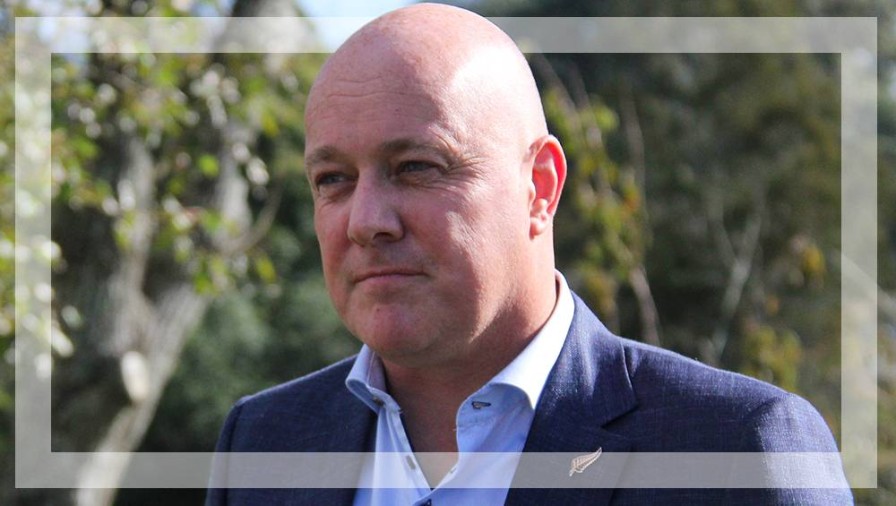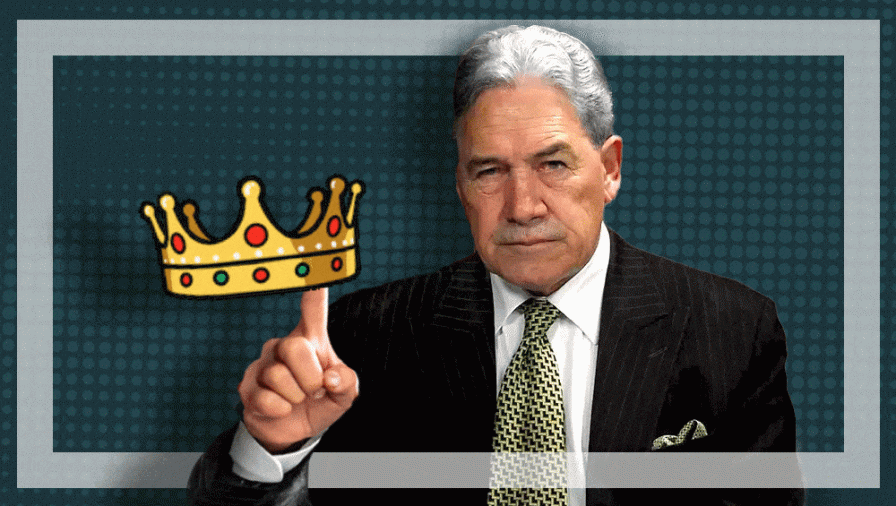Race relations, backing the US, beating inflation
ANALYSIS: Prime Minister Christopher Luxon has reassured Māori the coalition will honour the Treaty.
WATCH: NBR political editor Brent Edwards speaks with Grant Walker.
ANALYSIS: Prime Minister Christopher Luxon has reassured Māori the coalition will honour the Treaty.
WATCH: NBR political editor Brent Edwards speaks with Grant Walker.
What hope is there of a reasoned debate on race relations and the Treaty of Waitangi?
Some governing parties accused the former Government of racism for supposedly privileging Māori ahead of other New Zealanders, while Te Pāti Māori accused the Coalition Government of showing all the traits of white supremacists.
Extreme language tends to prompt extreme responses, but Prime Minister Christopher Luxon appears to be keen to tone down the rhetoric.
Luxon called comments from Te Pāti Māori offensive and “very divisive and very unhelpful”.
He told his first post-Cabinet news conference of the year that there would always be strong voices on all sides of any debate in the country but that did not necessarily mean the country was not unified.
“I’ve lived and worked all around the world and what I watch is increased polarisation in many liberal democracies across the world. And we actually have a choice here in New Zealand to actually say: ‘We can hold different views from each other. We can be respectful of each other without throwing labels and names and language and words around at each other.’
“But it requires us to walk across the room and at least have a conversation, even if we disagree with the other person, to do that,” he says.
Much of the heat around the issue has come from the coalition’s intention to introduce legislation to Parliament seeking to redefine the principles of the Treaty of Waitangi.

Prime Minister Christopher Luxon.
Yet the National Party – as part of its coalition agreement with the Act Party – has only agreed to support the legislation going to select committee for consideration. After that all bets are off.
And, this week, Luxon has made it pretty clear the legislation will go no further once it has been considered by a select committee.
At Rātana this week, he reassured Māori about the status of the Treaty of Waitangi.
“Let me be absolutely clear. The Government has no plan, and never has had plans, to amend or revise the Treaty, or the Treaty settlements we have all worked so very hard together to achieve. The Government will honour the Treaty. But, unlike the Labour Government, we will honour it without moving away from equal voting rights, without creating complex co-governance bodies and bureaucracies in Wellington to decide how central services should be delivered in the regions, and we will honour it while upholding the equality of all New Zealanders before the law,” Luxon said.
As well, he has signalled very strongly the relationship with Māori is a partnership, a view Act appears to challenge.
Luxon has also given reassurances about te reo Māori, telling Rātana that the Government sees Māori language and culture as fundamental to the “successful and unique country that New Zealand is today”.
“I want to leave you today with this message: I am committed to Māori progress. The people seated behind me [which included New Zealand First leader Winston Peters and his deputy Shane Jones] are, and every party in the coalition is too. I would not have agreed to lead a government that did not believe in improving outcomes for all.”

Deputy Prime Minister and New Zealand First leader Winston Peters.
At his post-Cabinet news conference, Luxon had also been joined by Peters as Foreign Affairs Minister and Defence Minister Judith Collins to announce six New Zealand Defence Force personnel were going to the Middle East to support the United States-United Kingdom military action against Houthi rebels who have been attacking commercial shipping in the Red Sea.
Both Luxon and Peters were quick to distance the military involvement – although the six staff will not be involved in direct combat – from the Israeli invasion of Gaza.
The US had requested the support but, in reality, the superpower would not need six New Zealanders to augment its military strikes. More important is the fact of involving another country’s flag in a multi-lateral military operation against the Houthi.
It drew immediate condemnation from the Green Party, which called the military deployment dangerous and naïve.
“It seems inconceivable for this Government to be so dangerously naïve to say that this deployment has nothing to do with the horrific violence that continues to suffocate Gaza. The Government should be using every opportunity to push for a permanent ceasefire in Gaza,” Green co-leaders Marama Davidson and James Shaw said in a statement.

Green Party co-leaders Marama Davidson and James Shaw.
Meanwhile, the latest consumer price index figures for the year to the end of December reveal inflation has fallen to 4.7%. Much of the continuing drop in inflation is driven by easing international prices, with domestic inflation proving to be more difficult to budge. But the overall trend remains downwards, and it is possible that inflation will fall into the Reserve Bank’s 1-3% target band by the end of the year.
But the bank is unlikely to crow victory just yet. It will want to see definitive proof that it has finally put the inflation genie back in the bottle before signalling an easing of monetary policy.
Finance Minister Nicola Willis is also cautious, saying there is still a lot more to do.
“The previous government had its foot on the spending accelerator while the Reserve Bank had its foot on the brake. Our Government understands that inflation is the thief that erodes the real values of people’s incomes and savings. We are focused on removing excessive inflation from our economy and won’t be satisfied until we have,” she says.
Next week, Parliament resumes sitting for the year before adjourning the following week as MPs head to Waitangi. It is likely discussions on the Treaty of Waitangi will dominate much of next week, leading into more heated debate at Waitangi itself.
Luxon faces a challenge as he seeks to avoid the increased polarisation he says is a feature of other liberal democracies.
Brent Edwards is NBR’s political editor.